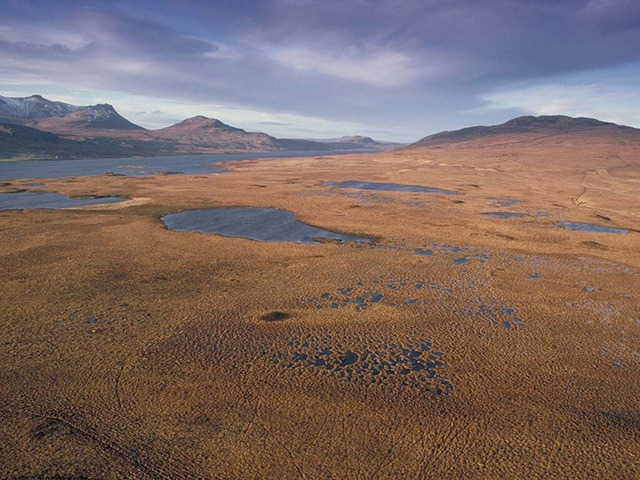
A windfarm plan for the heart of globally important peatland was yesterday described “one of the most worrying” the RSPB has ever seen.
And SSE’s application for 47 turbines in the Flow Country of Caithness would have an adverse impact on habitats for rare birds, said the Scottish Wildlife Trust.
The area known as Strathy South is home to a wide range of vulnerable breeding species such as golden eagle, hen harrier, merlin, black-throated diver, red-throated diver, greenshank and golden plover.
But SSE said yesterday that they had scaled down their scheme because of concerns from the RSPB and other parties.
The company originally applied for 77 turbines, up to a height of 360ft, in 2007. But the application was put on hold for the company to revise the proposals. Their new scheme includes 47 turbines, up to a height of 442ft, in a non-native conifer plantation.
The trees were planted in the 1970s but are now acknowledged to have been a mistake and are the subject of large-scale restoration works. In a 30-page submission, the RSPB criticised the proposal for its impact on breeding birds and its location.
Stuart Housden, director of RSPB Scotland, said: “This is, without doubt, one of the most worrying wind farm applications we have seen in Scotland.
“Not only does it risk harming some of the UK’s rarest species, it would make restoration of this core part of the globally important Flow Country much more difficult.” He added that while windfarms played a “vital part” in tackling climate change, damage to wildlife “must be minimised”.
He said: “Over the last few years, SSE have shown that they can be a responsible developer, abandoning or amending some proposals elsewhere in Scotland that would have harmed wildlife – but this proposal sticks out like a sore thumb in their current portfolio. That they would consider something like this, in such a vital home for nature is very disappointing.”
Living landscape policy officer for the wildlife trust Bruce Wilson, said: “The trust recognises that windfarms are among the most established of renewable technologies and supports their development as part of Scotland’s energy portfolio.
“However, they must avoid sites where there would be unacceptable modification, loss or fragmentation of important species, habitats or ecosystems, in line with the criteria set out in our policy on the planning system.”